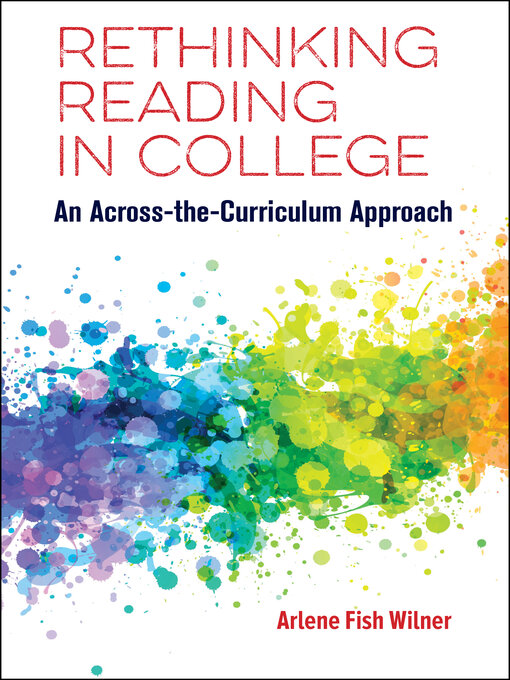Rethinking Reading in College argues for more systematic attention to the role of reading comprehension in college, as a necessary step in addressing the inequities in student achievement that otherwise increase over time.
Synthesizing theory from literacy scholars with strategies derived from classroom inquiry projects, and through a critique of the philosophy behind the Common Core State Standards, Arlene Fish Wilner examines the needs of college-bound high school students and interrogates the nature of "remediation" in college. Arguing that when supported by rhetorical-reading assignments, students in all first-year writing classes can and should explore complex and enduring texts.
Addressing both composition and reading across the curriculum, Wilner demonstrates how faculty in all disciplines and at all curricular levels can improve student outcomes by first deliberately inhabiting the persona of novices, rethinking their assumptions about what students know and can do as apprentices in a field.
She also illustrates the limitations of the literary vs. nonliterary text binary through a study of the demands posed by To Kill a Mockingbird, a novel commonly taught in both high school and college. An outline for a two-semester first-year general education course and examples of writing-to-read assignments from a range of disciplines are adaptable across subject areas and institutions.

